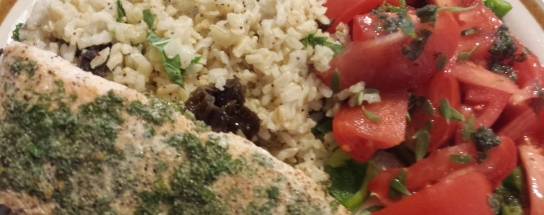
So, you’re doing cardio religiously and you’re not getting any results…What’s the deal? Good news. You’re probably just making some minor mistakes that need to be corrected. If you want to make changes to your body, it’s probably pretty important for you to understand how your body works and it's important for you to understand how nutrition can boost your cardio. After all, I doubt you’re running on the treadmill because your cable got shut off and the cardio-theater at your gym is the only place you can watch your favorite TV program! I’m almost certain you want to burn fat. So, let’s learn how that works.
We’re going to talk about using nutrition to maximize the benefits of your workout. What you eat and when you eat it can make a world of difference. But first, we need to talk about how your body works.
Even though you want to get rid of the excess fat that’s stretching out your pants, your body is not in such a hurry to do so. You almost have to trick your body into burning that fat as energy. You need to have fat to survive, and to your body, those love handles are money in the bank. Because of this, when you don’t eat anything for an extended period of time (as little as 4 waking hours), your body will go into what’s called “starvation mode.” In starvation mode, your body will actually store more fat and break down muscle tissue to use as fuel. This slows your metabolism and increases your body fat. It’s basically a self defense mechanism. With no fuel coming in, your body fears it may have to survive for some time without food. Your body doesn’t know that you’re just stuck in traffic or that you had to skip lunch because your boss was making you do his work. It just thinks, I’m gonna starve. So instead of using it’s valuable fat stores, your body gets stingy and actually cannibalizes it’s own muscle tissue to use as fuel.
So to keep your body from freaking out and going into starvation mode, try to eat small meals throughout the day. 5 to 6 small meals a day is ideal. When I say meals, that doesn’t mean that you need to sit down and have 3 courses. A handful of almonds or even a protein shake can count as one of those meals.
On the other end of the spectrum, if you eat a turkey sandwich right before you hop on the treadmill, your body won’t burn fat then either. When you eat carbohydrates, your body stores them in the form of glycogen in your liver. As you expend energy, your body uses these glycogen stores until they are gone. When performing any type of aerobic activity, like walking, running, etc., your body can use glycogen stores or fat stores for fuel. The problem is that your body will never use the fat stores until the glycogen stores are gone.
So you’re saying that if I don’t eat, my body will get scared and hold on to all my body fat, but if I do eat, my body will just use that as fuel instead of burning fat? Yes…. And if this were the end of the article, you would probably be pretty mad. Fortunately, there are ways to make this work.
- Option 1: Right when you wake up, before you even eat or drink anything (except water), do 55 minutes of moderate impact cardio. Walking on an elliptical machine is ideal. If you’re breathing too hard to carry on a conversation normally, slow down. If you get light headed or weak from this option, eat something with no carbs before you workout. For example: egg whites, chicken breast, or a protein shake with no carbs. Protein consumption will not affect your glycogen stores so your body will still be willing to burn fat. With this option, it’s okay to eat breakfast when you’re done.
- Option 2: If you only have 20 minutes in the morning, do intervals before you eat. Warm up for 5 minutes and then run for one minute and walk for two. Each time you run, make it a little more intense until you are running at full blast for one minute. After 20 minutes of these intervals, cool down walking for 5 minutes and then don’t eat for an hour after you’re done. Your body will burn fat for that entire hour.
- Option 3: If you can only do your cardio in the middle or at the end of the day, use either of the above formulas but try to workout about 2-2 1/2 hours after you eat.
- Option 4: Do your cardio right after you do your weight training. I know you’ve heard to do it before…this is wrong. Warming up for 5 minutes before you weight train is fine, but always do your fat burning cardio sessions after your weights.
- Option 5: If your cardio sessions are more intense like an advanced step class or a spin class, you’re better off having something in your stomach. Try eating about 2 hours before the class and then don’t eat for an hour after the class. Most often, during an intense cardio workout, your body is not willing to burn fat as fuel. It doesn’t know that you’re going to stop in an hour. It thinks this behavior could continue for some time so it can get stingy with it’s energy stores. But it will burn plenty of fat in the hour after you’re done.
Be specific when following these formulas. They work. Am I saying that if you eat before your cardio that you’re wasting your time? No, anytime you do cardio it’s great for your heart, you’re burning calories and you can increase your metabolism. But why not get the maximum benefits if you’re going to do the work anyway.
Article by: Shape You